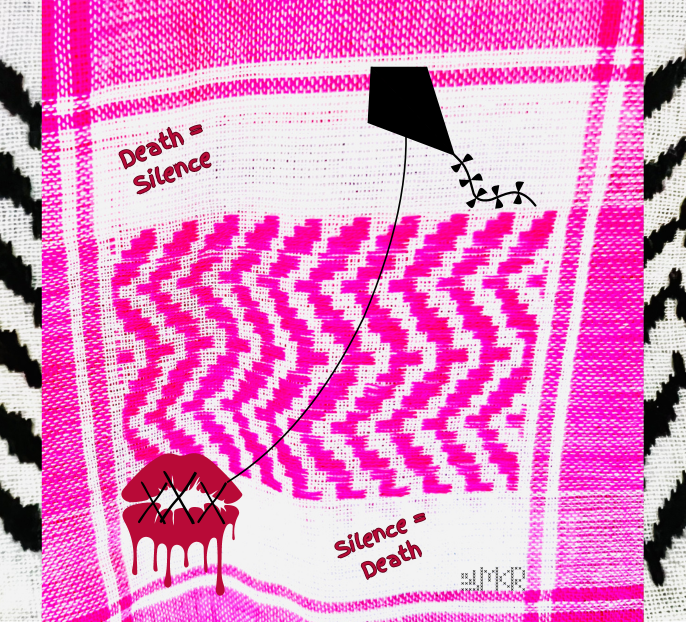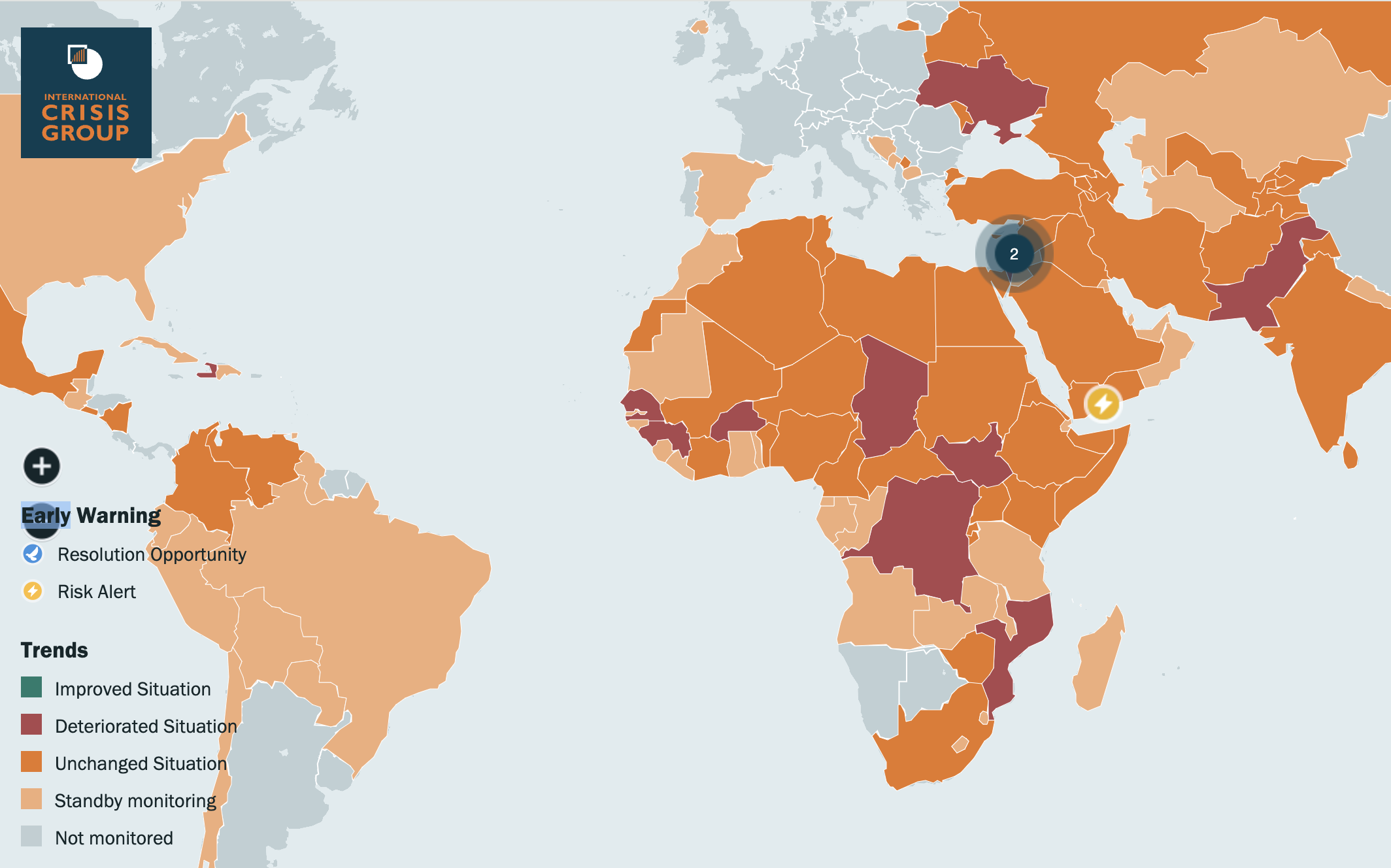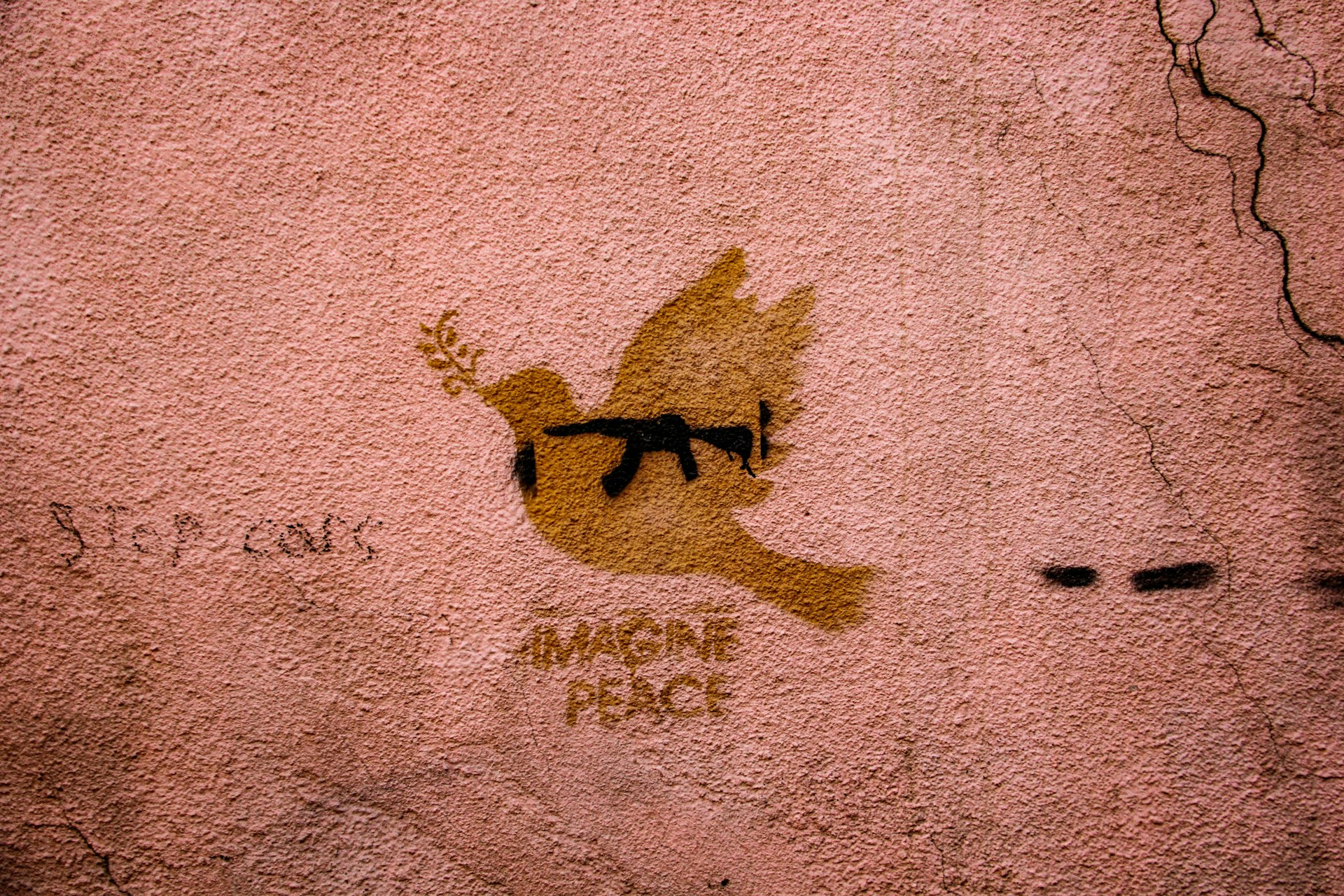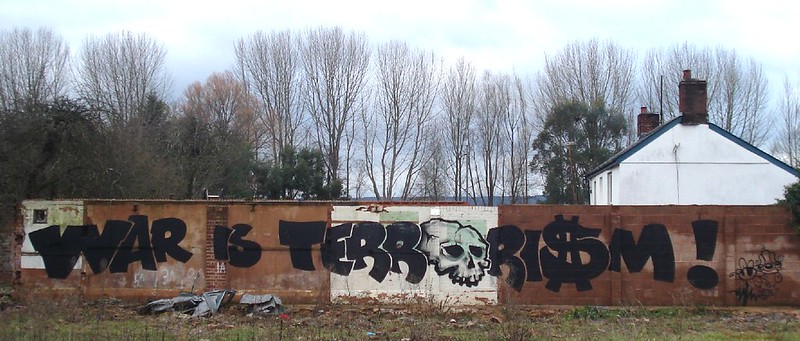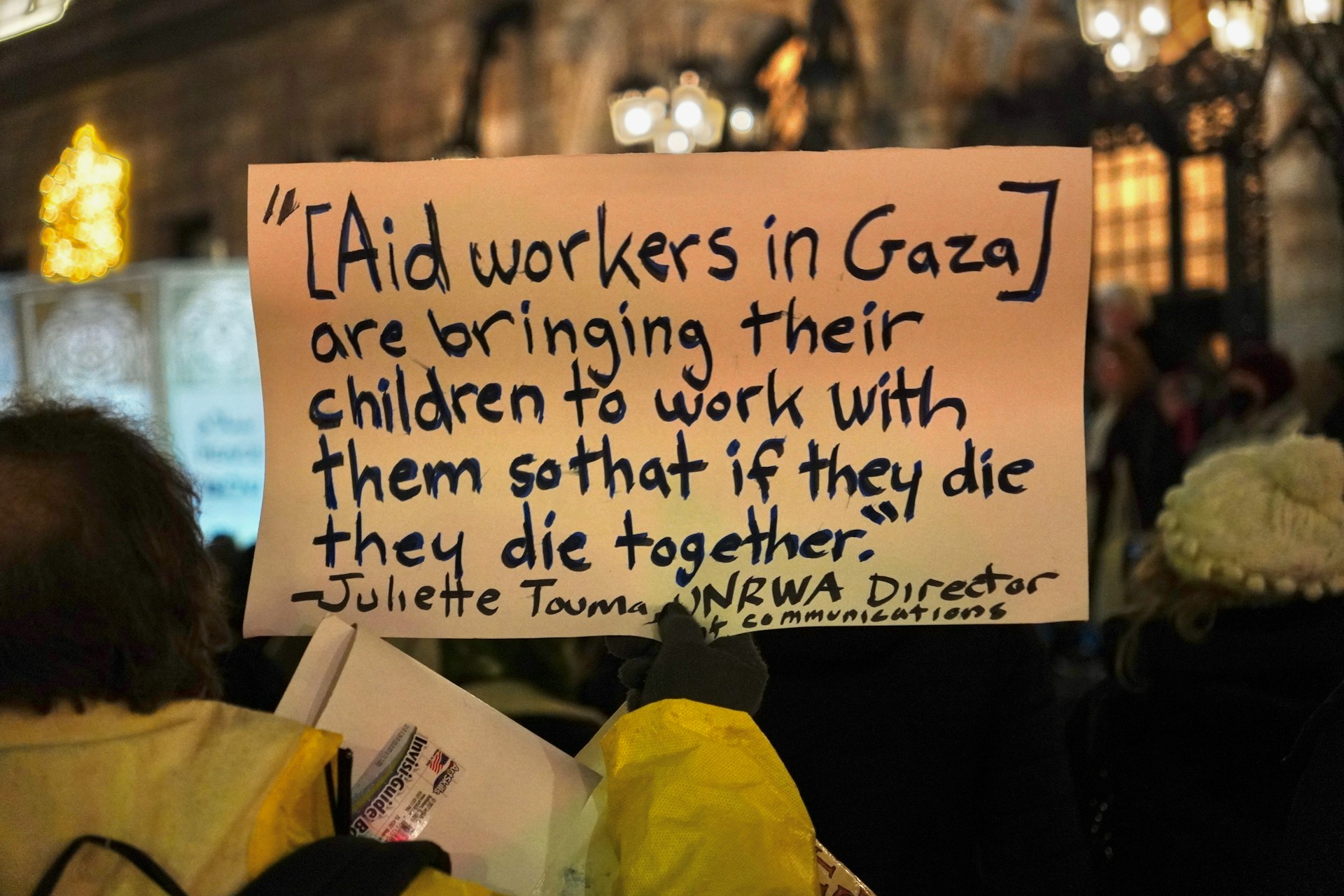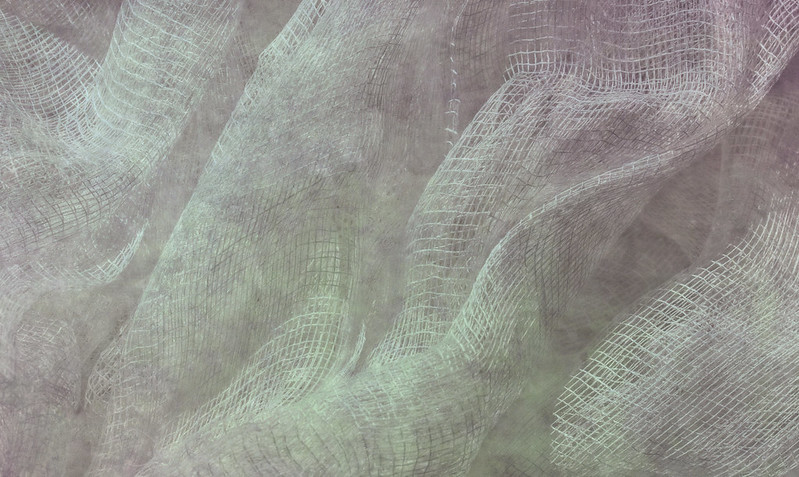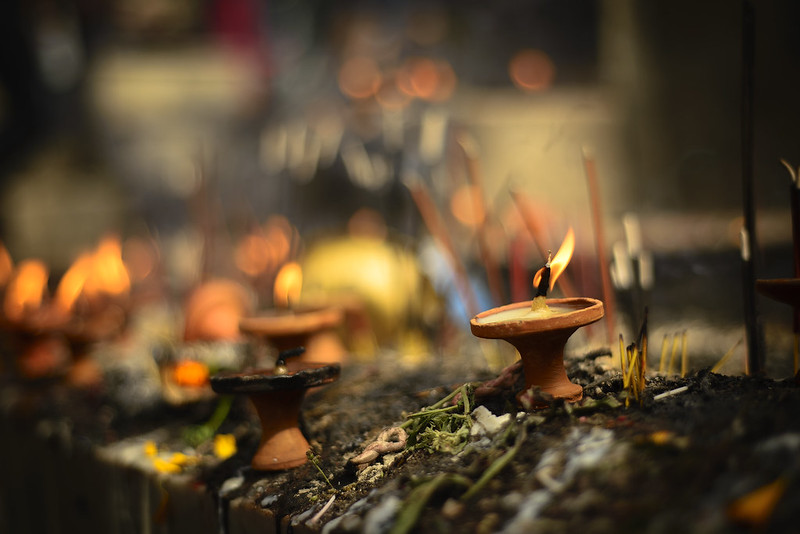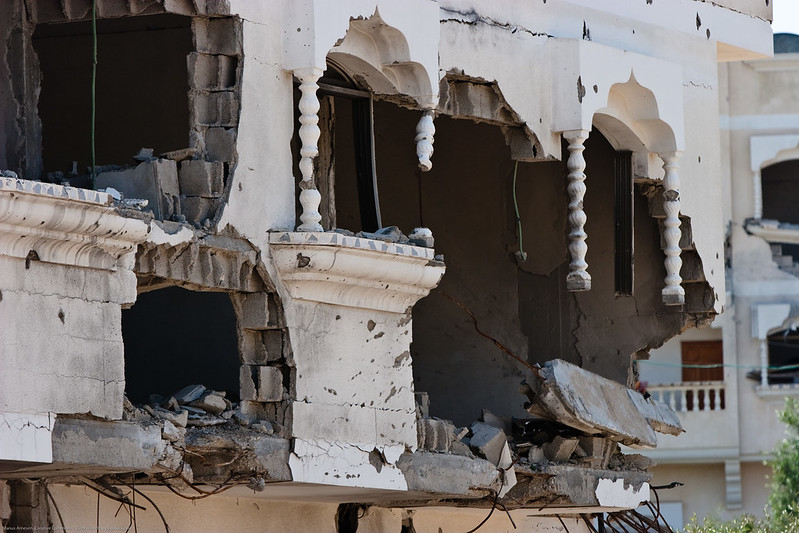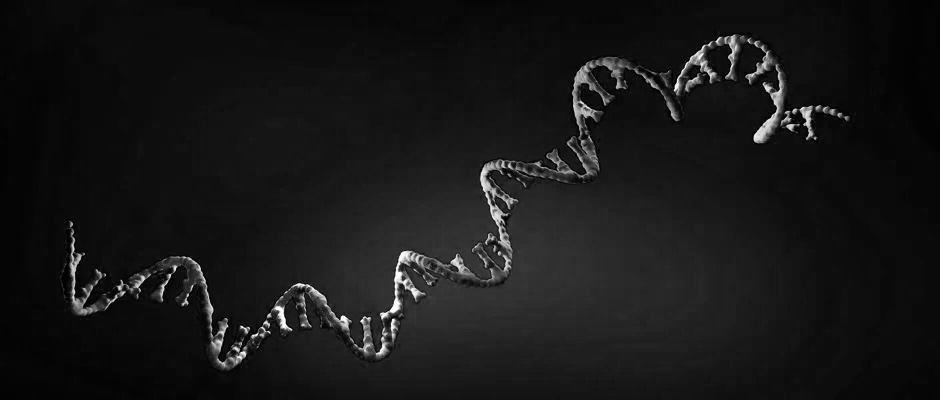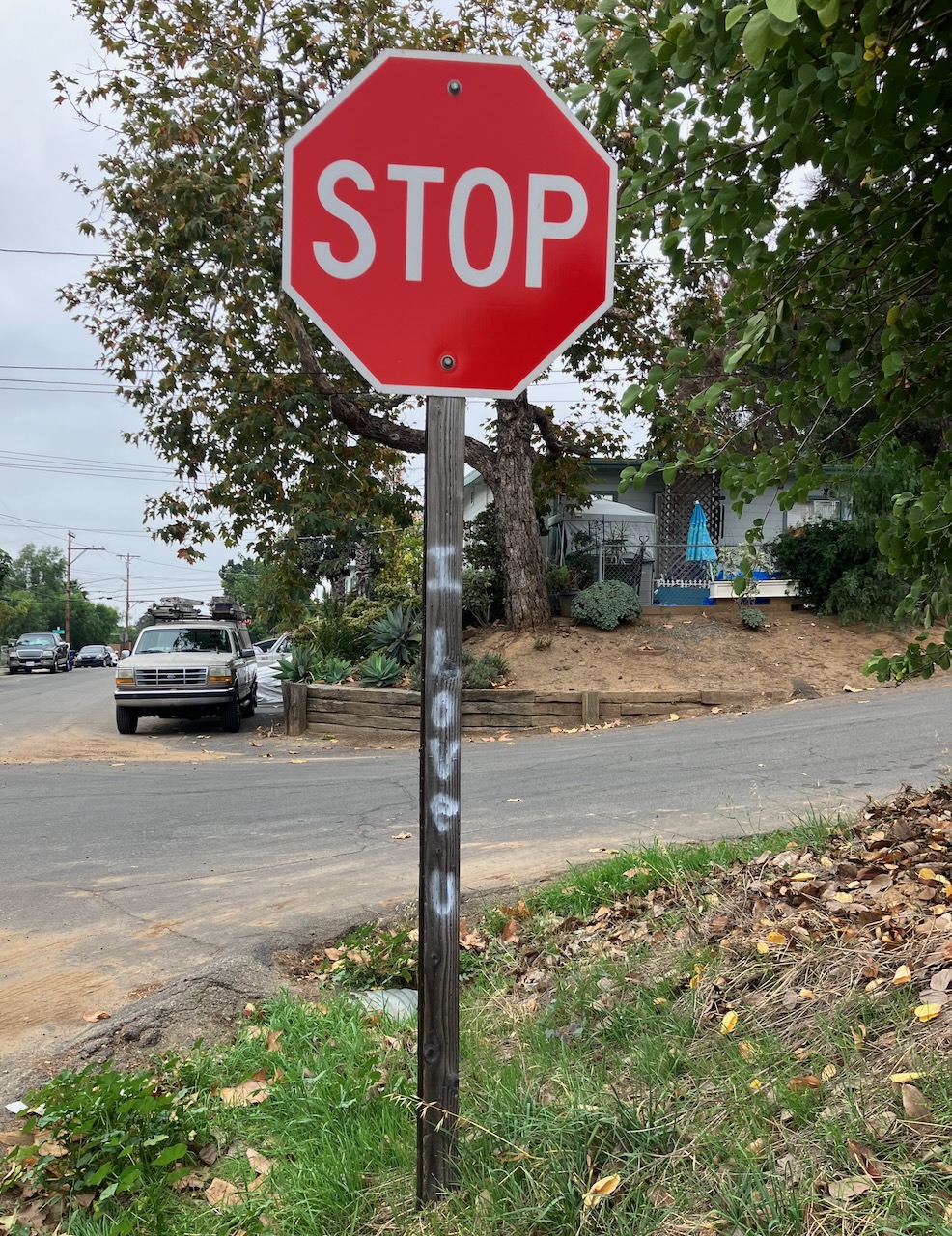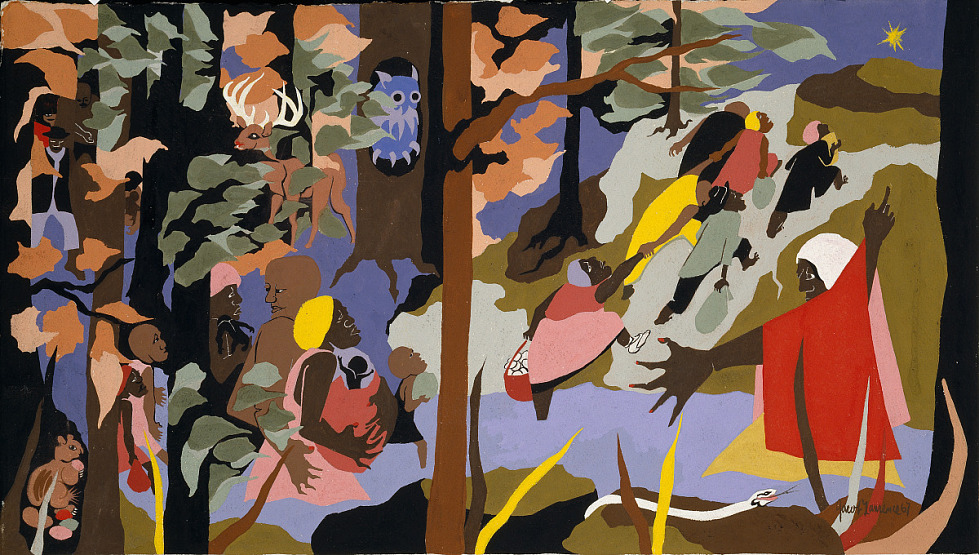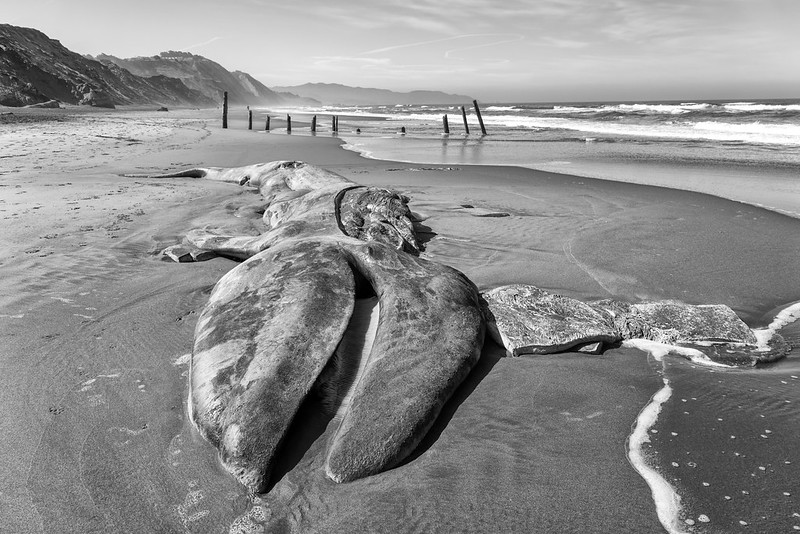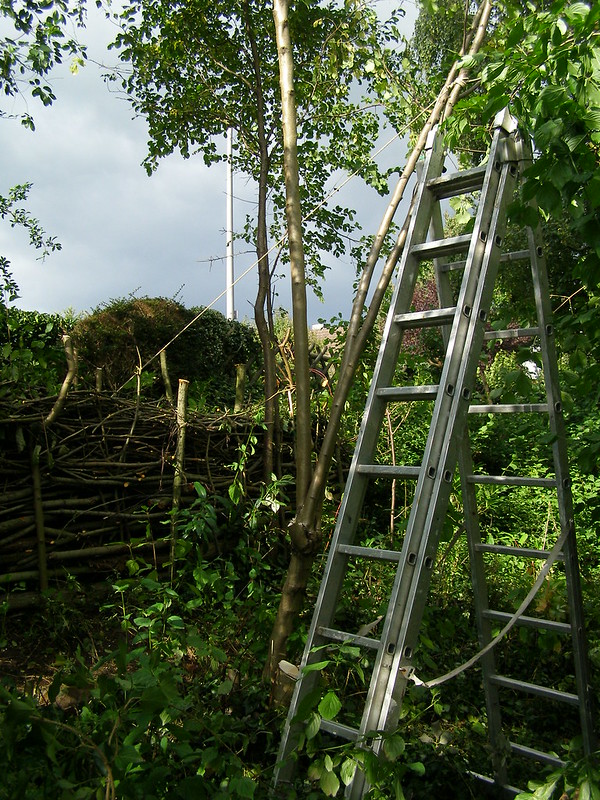Death Equals Silence
By Micaela Kaibni Raen
Artist statement
I am my grandmothers’ dream, and she is mine. We exist together through Tatreez, Indigenous Palestinian textiles and embroidery. We share cultural memory and wisdom traditionally handed down, Palestinian female to Palestinian female. As a Palestinian lesbian artist, I feel Tatreez patterns hold a deep connectivity to ancestral Indigenous femininities that can be accessed through creating art based on the patterns, repetitions, and mathematical matriarchal matrices inherent in Tatreez stitching sequences. My goal is to take these intuitive insights and formulaic computations to create a new visual artform, Queer Tatreez. A style of art focused on ancestral wisdom that embraces inclusivity, diversity, and the land that gives us life.
My mission, with this artwork, Death Equals Silence, is to educate others in order to bring an end to the military occupation, and ongoing Nakba, in Palestine. I am living in exile in North America, and my artwork strives to bring our sacred teachings, rooted in spirit and land, fully into the present moment. Two keffiyeh scarves are shown, one is black and white, while the other is pink and white. To me, the keffiyeh is a symbol of cultural identity and sumud/steadfastness. Two color variations are shown to represent both the Palestinian men and women killed since October 2024. The kite image symbolizes the children of Gaza who currently have the Guiness World Record for the most kites flying at once. With little documentation and no headstones, the black kite flies as our death marker, re/telling the stories of the thousands of children that have been targeted and killed during the current genocide.
The Aids Coalition to Unleash Power (ACT UP!) has used the slogan Silence = Death to mark many social justice movements from the HIV/AIDS pandemic, Queer and Trans human rights, the Palestinian genocide, and more. At the top, I have flipped the words to read, “Death = Silence.” This is not a general statement of truth. This is in direct reference to…whole families (and their genetic line of familial relatives) that were targeted and killed since October 2024. Especially targeted were teachers, leaders, doctors, activists, journalists, authors, humanitarian workers, social workers, etc. Statistics show that death disproportionately silences children and those working toward justice. The words in the artwork combined with the lips sewn together represent the current global climate of racism, ethnic-cultural-erasure, shadow-bans, and censorship of Palestinian voices.
For this artwork, I researched ancient and modern patterns of Palestinian embroidery and keffiyeh scarf patterns. I used two keffiyeh scarves to design textile/images through high resolution scans and graphic art. Through art layering, I placed the images onto a graphic art layer and then designed the text and other graphical elements. My work incorporates multimedia modalities and is an ever-evolving journey. Contemplating Tatreez patterns, and the act of Tatreez creation, become a bridge into deep space time where I sit with my grandmothers in a sacred Tatreez Circle, embraced, and listen.
Micaela Kaibni Raen is a Palestinian-American creator, cultural worker, queer femme-dyke, mother, and global Queer/Trans human rights activist. She is most known for Queer Tatreez, a style of visual art and visual poetics based on Indigenous Palestinian Tatreez embroidery. Her work appears in Mizna; Qafiyah Review; Rowayat; Yellow Medicine Review; The Poetry of Arab Women; and El Ghourabaa: A Queer and Trans Arab and Arabophone Anthology. For more information, visit her website and Instagram.
A note from Writers Resist
Thank you for reading! If you appreciate creative resistance and would like to support it, you can make a small, medium or large donation to Writers Resist from our Give a Sawbuck page.

